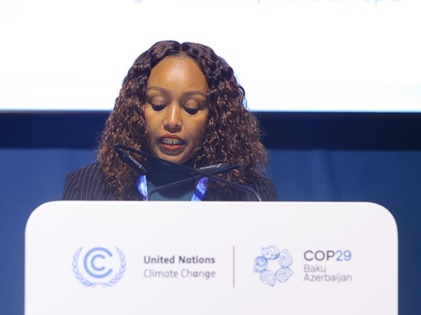
Global collaboration on climate change is critical for solving the complex and interlinked difficulties that climate change presents. Despite their commitment, states around the world adopt diverse ways, including international cooperation, to confront the challenge of climate change.
Among other things, world leaders reached an agreement on the Paris Agreement in 2015. This historic agreement, signed by nearly all countries, intends to keep global warming to 2 degrees Celsius above pre-industrial levels, with efforts to restrict the increase to 1.5 degrees Celsius. Countries make nationally determined contributions (NDCs) to reduce greenhouse gas emissions and are encouraged to raise their targets over time.
Besides, the United Nations Framework Convention on Climate Change (UNFCCC), which was founded in 1992, is critical because it offers a framework for international climate cooperation by facilitating talks and conferences (COP meetings) to monitor progress and make decisions.
These and other bilateral and multilateral agreements are critical for assisting developing countries in financing climate mitigation and adaptation programs. It is also critical to raise funds from developed countries to support initiatives that reduce emissions and increase resilience. It is also a key to transfer technology and knowledge from developed countries to developing countries and to ensure that all nations have access to the tools required to combat climate change.
International cooperation and climate change agreements are also important because they establish capacity-building initiatives and scientific collaboration to address regional cooperation, such as the African Union’s Agenda 2063, which includes climate resilience and sustainable development goals in its framework.
In general, making significant progress in reducing the effects of preparing for climate change requires international cooperation. Although there have been notable advancements thanks to international agreements and initiatives, continued cooperation, dedication, and creativity will be essential to successfully tackle this urgent global issue.
In light of these realities, China and Ethiopia undertook bilateral discussions on climate change mitigation. The discussion coincided with the COP29 summit in Baku, Azerbaijan. Because issues related to climate change need global cooperation and discussion since they are cross-cutting global challenges.
Moreover, Ethiopia and China have formed a diverse relationship over time, marked by political, economic, and cultural links. Specifically, their economic collaboration requires environmental conservation and preservation. China’s investment exists throughout the country. China’s involvement in Ethiopia is significant, with Chinese corporations investing considerably in infrastructure projects such as roads, trains, and industrial parks.
Furthermore, the Addis Ababa-Djibouti Railway, built by a Chinese corporation, is a prime example of this investment. Ethiopia also plays an important role in China’s Belt and Road Initiative (BRI), which aims to improve global trade routes and infrastructure development. This program resulted in increasing Chinese investment in Ethiopian infrastructure. As a result, collaboration between Ethiopia and China is critical in combating climate change.
Ethiopia’s Minister of Planning and Development, Fitsum Assefa (PhD) stated that Ethiopia has been taking steps to lessen the negative effects of climate change and that cooperation between Ethiopia and China is crucial in this regard. She also highlighted the accomplishments of the Green Legacy Initiative, which has planted more than 40 billion trees since 2019, increasing Ethiopia’s forest cover to 23.6% while generating employment and improving community life.
Besides, to meet its energy needs, Ethiopia is working on renewable and green energy. Ethiopia’s renewable energy exports to Kenya, Sudan, and Djibouti in addition to meeting its own demand. These are significant initiatives to promote regional green integration. Therefore, collaboration between China and Ethiopia on environmental matters is essential to strengthening the existing one and to start new climate change mitigation programs.
China’s Special Envoy on Climate Change, Liu Zhenmin, reaffirmed China’s commitment to low-carbon emissions and green growth through the Belt and Road Initiative. This involves joint initiatives to further global climate goals with Ethiopia and other countries. He continued by saying that China and Ethiopia are working together to advance the Paris Agreement and serve as a model for global climate cooperation.

Indeed, Ethiopia and China have collaborated in a variety of ways to combat climate change, reflecting their shared goals for sustainable development, economic growth, and environmental protection. Both countries pledged to collaborate on environmental protection, sustainable development, and climate change mitigation. China has been a key partner in Ethiopia’s renewable energy sector, notably hydropower development. Projects such as the Grand Ethiopian Renaissance Dam (GERD) are intended to generate significant renewable energy, reducing dependency on fossil fuels and helping to mitigate climate change.
More importantly, Chinese businesses have contributed to Ethiopia’s energy diversification and sustainable practices by investing in solar and wind energy projects. Another area of collaboration between these two nations is the sharing of clean technologies. Ethiopia has benefited from clean technology transfers from China, which can increase Ethiopia’s ability to reduce greenhouse gas emissions. This covers innovations in sustainable farming methods, energy efficiency, and renewable energy.
Once Chinese Embassy Minister Counselor Shen Qinmin told local media that the bilateral cooperation between Ethiopia and China was at a new height. Their ties have been further cemented with the all-weather strategic partnership.
He noted that diplomatic collaboration is expanding dramatically in terms of political and economic diplomacy, commerce, investment, and people-to-people relations. Their relationship has reached a new level of strategic partnership, strengthening the two countries’ overall ties. China collaborates closely with Ethiopia in agriculture, the digital economy, manufacturing, and industry, among other areas.
He emphasized that the growing number of Chinese investors in Ethiopia on an annual basis is a sign of the two countries’ solid partnership. According to him, the continued bilateral connections are another indication of the improved Ethio-China partnership, which also calls for environmental cooperation to slow down climate change.
Without a doubt, strong economic cooperation and reciprocal political backing characterize Ethiopia-China ties. These have been made visible by their ongoing collaboration across all industries. Another crucial area of collaboration between the two nations is the discussion of climate change. In particular, Ethiopia’s and China’s climate change collaboration is varied and includes capacity building, technological transfer, financial investment, and cooperative involvement in global initiatives.
The collaboration between Ethiopia and China is critical to meet climate change mitigation goals while promoting economic development and resilience to climate change shocks. As both countries face the difficulties of climate change, their collaboration is expected to evolve to meet new issues and opportunities in the field of sustainability. Their dedication to combating climate change is thus critical, not just for implementing the Paris Agreement but also for setting an example of international climate cooperation.
BY EPHREM ANDARGACHEW
THE ETHIOPIAN HERALD SUNDAY EDITION 24 NOVEMBER 2024




